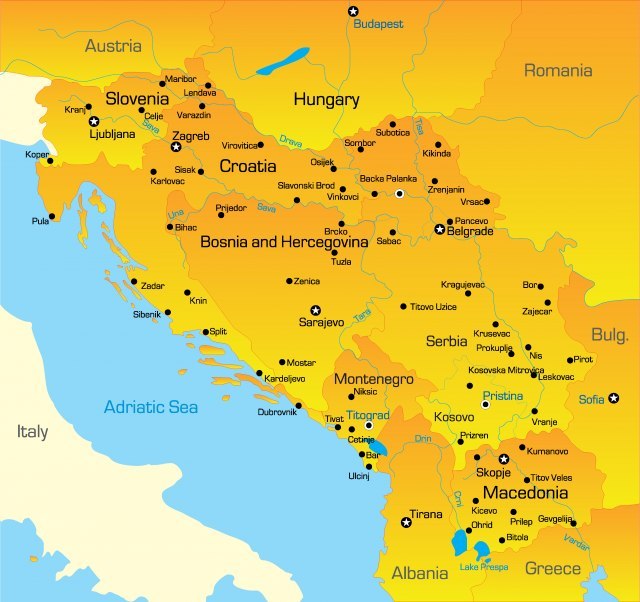"Non-paper" shook the region: New borders in the Balkans
"Uncensored" from Slovenia published a "non-paper" on the new divisions.
Friday, 16.04.2021.
10:46

"Non-paper" shook the region: New borders in the Balkans
No one has officially confirmed that the President of the European Council, Charles Michel, received a document of such content from Slovenia. But an unofficial diplomatic document that predicts the disintegration of Bosnia and Herzegovina, the annexation of the Republic of Srpska to Serbia and the unification of Kosovo with Albania actually exists, Uncensored wrote, as the Klix.ba portal reports.According to the information published by the Slovenian portal, the document entitled "Western Balkans - the way forward" was received by the office of Charles Michel in February.
The author is still unofficially unknown. According to Slovenian journalists, it was certainly not written in the Slovenian Ministry of Foreign Affairs.
Allegedly, part of the content could have been written in Budapest. However, in diplomatic circles in Brussels, it was referred to as a "Slovenian" document, because the office of Mr. Jansa allegedly participated in sending it to various addresses.
Since it is an unofficial diplomatic document intended for communicating various views and initiatives without an official character, it has neither a header nor a signature. It arrived to Michel outside official diplomatic mail, so its existence can be publicly denied at any time.
Therefore, this is not the official position of Slovenia, but one of many informal proposals for a possible solution to the issue concerning the countries of the former Yugoslavia. Its content is completely in contradiction with all valid documents on which Slovenia's foreign policy is based. How to dismember Bosnia
The introduction of the document thus mentions the "unresolved national issues of Serbs, Albanians and Croats", which emerged after the break-up of Yugoslavia. The authors of the document point out that even after the establishment of peace after the end of wars promised European perspectives and the progress of Northern Macedonia and Montenegro in this direction in the region, "key issues remain unresolved". These are the questions:
- The Dayton Accords of 1995, which ended the war in Bosnia and Herzegovina, which claimed more than 100,000 lives, practically recognized what had been achieved in the war, but not in principle.
- That it is currently difficult to imagine the European perspectives of Serbia and Kosovo.
- Membership of Bosnia in the EU can be completely excluded.
- In the meantime, the gap has been used by Turkey, which has increased its influence in Bosnia and Northern Macedonia.
- Except for Turkey, a few local politicians and their supporters, who personally benefit from the chaos and dysfunctional institutions, no one else is content with the situation in Bosnia.
A key section of the "non-paper" are the proposed "solutions" to the previously described problems.
The authors of the document emphasized that Serbia, Croatia, and Albania currently have stable governments and that their elected politicians are capable of making strategic decisions. What do they propose?
1. Unification of Kosovo and Albania. "In Kosovo, 95 percent of the population wants to unite with the Albanian nation. The situation is similar in Albania. The border between Albania (a NATO member) and Kosovo is practically non-existent. The Serbian part of Kosovo would receive a special status - modeled on South Tyrol." It was written in the document. It is an autonomous province in northern Italy, where the majority of the population speaks German.
2. Unification of a larger part of the territory of the Republic of Srpska with Serbia. "The Serbian national question can be largely resolved by annexing part of the Republic of Srpska to Serbia. In this case, Serbia is ready to agree to the unification of Kosovo and Albania," the document reads.
3. The Croatian national question maybe resolved by merging most of the Croatian cantons in Bosnia with Croatia or by giving the special status to the Croat part of Bosnia (following the example of South Tyrol)."
4. "This would give Bosnians an independently functional state and to take full responsibility for it. In a referendum, people would decide whether to join the EU or a future outside the EU (following Turkey's example.) For now, the vast majority of Bosnians support the EU, but with this Turkish influence and radical Islam, the situation could worsen drastically in the next decade."














































Komentari 0